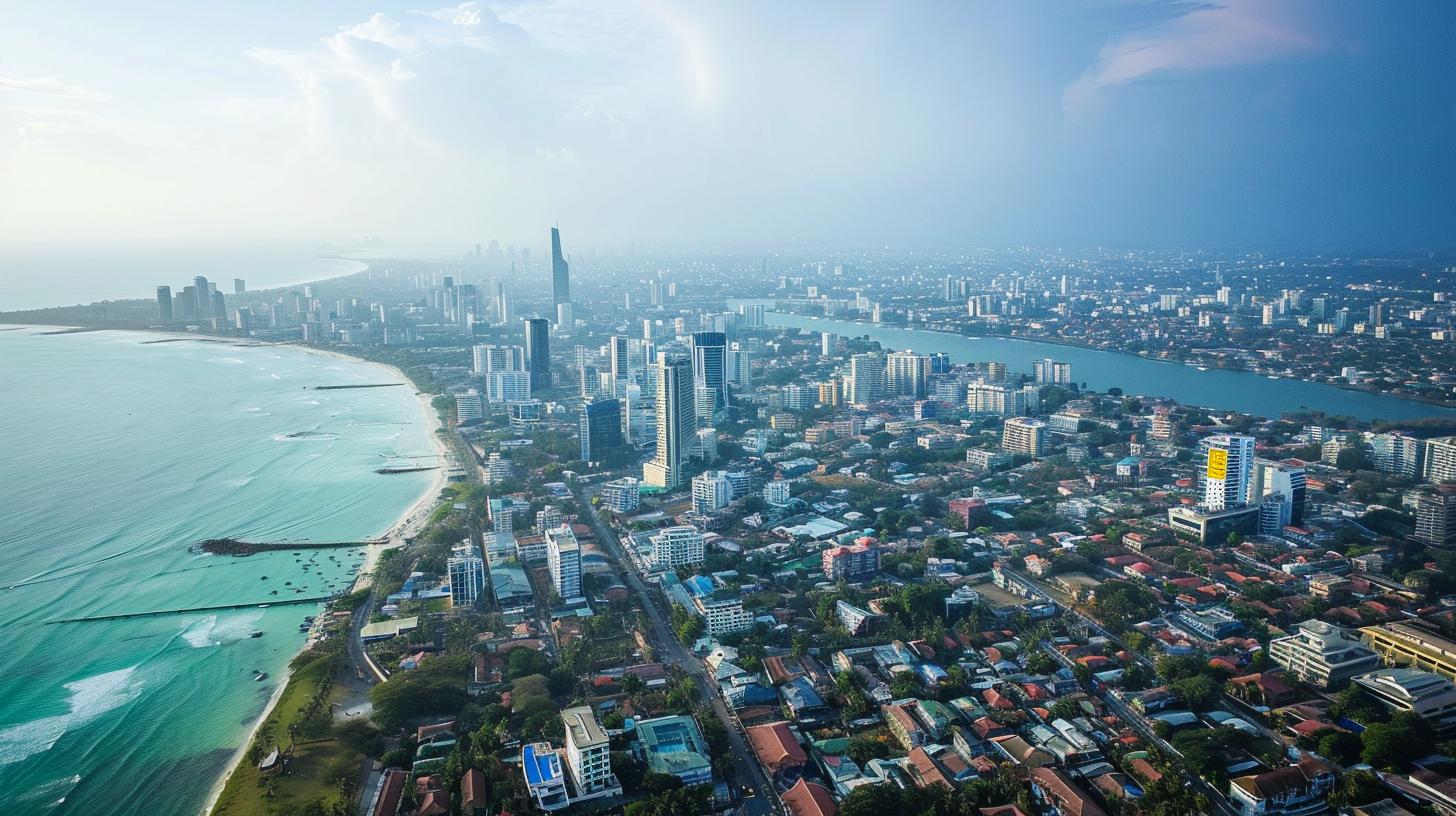The Growing Presence of China in Sri Lanka’s Economy
China’s investment in Sri Lanka has been surging, with a multibillion dollar oil project being the latest addition. However, this growing presence is raising concerns about the extent of China’s leverage over the island nation. Sri Lanka, which defaulted on its sovereign debt in 2022, has become heavily reliant on Chinese loans to finance its infrastructure projects, including highways, airports, and ports. As the largest bilateral creditor to Sri Lanka, China’s role in the country’s economy has become a key topic of discussion.
Assessing China’s Leverage over Sri Lanka
The increasing investment from China has led to questions about the leverage Beijing holds over Sri Lanka. The country’s default on its sovereign debt has put it in a vulnerable position, and China’s substantial loans have further complicated the situation. Some analysts argue that China may use its significant leverage to exert influence over Sri Lanka’s economic policies and strategic decisions. It is crucial for Sri Lanka to carefully evaluate the terms and conditions of its agreements with China to avoid undue influence on its sovereignty.
Implications of Chinese Investment on Sri Lanka’s Debt Restructuring
Sri Lanka’s debt restructuring efforts are significantly impacted by the Chinese investment in the country. The large amount of debt owed to China has made it difficult for Sri Lanka to negotiate favorable terms with other creditors. The dependence on China for financial assistance raises concerns about the country’s ability to maintain its economic autonomy and make independent decisions about its future. It is essential for Sri Lanka to diversify its sources of funding and engage in transparent and responsible borrowing practices to reduce its reliance on a single country.
Examining the Role of Chinese Loans in Sri Lanka’s Infrastructure Projects
Chinese loans have played a significant role in financing Sri Lanka’s infrastructure projects, including the construction of highways, airports, and ports. These projects have been seen as crucial for the country’s economic development and connectivity. However, concerns have been raised about the transparency and sustainability of these deals. Sri Lanka must carefully evaluate the long-term implications of such projects and ensure that they benefit the country’s economy and people in a balanced and sustainable manner.
China’s Status as Sri Lanka’s Largest Bilateral Creditor Raises Concerns
The fact that China is Sri Lanka’s largest bilateral creditor raises concerns about the country’s economic sovereignty. With a substantial amount of debt owed to China, Sri Lanka may find itself bound by the strategic interests of its creditor. This raises questions about the independence and autonomy of Sri Lanka’s decision-making processes. It is crucial for Sri Lanka to diversify its creditor base and build strong economic ties with a range of countries to reduce the risks associated with excessive dependence on a single creditor.
Conclusion
China’s investments in Sri Lanka have undoubtedly brought opportunities for infrastructure development and economic growth. However, it is essential for Sri Lanka to carefully manage its relationship with China to safeguard its economic sovereignty and ensure sustainable development. By diversifying its sources of funding, negotiating favorable terms, and prioritizing transparency and accountability, Sri Lanka can navigate the challenges posed by China’s growing presence in its economy and harness the benefits of foreign investment while protecting its national interests.
Analyst comment
Neutral news
As an analyst, the market will likely be impacted by China’s growing presence in Sri Lanka’s economy. Sri Lanka’s heavy reliance on Chinese loans and investments raises concerns about economic sovereignty and debt restructuring. To mitigate risks, Sri Lanka should diversify its funding sources and prioritize transparency and accountability in its agreements with China. The market may experience fluctuations as Sri Lanka navigates the challenges and opportunities presented by this relationship.













